Khalil Amine
Guest Editor for this issue of MRS Bulletin

Chemical Sciences and Engineering Division, Argonne National Laboratory, USA; email [email protected].
Amine is an Argonne Distinguished Fellow and the manager of the Advanced Battery Technology Programs at ANL, where he is responsible for directing the research and development of advanced materials and battery systems for HEV, PHEV, EV, satellite, military, and medical applications. He is also a member of the US National Research Council on battery-related technologies. His research interests include high voltage cathode, silicon-based composites, high voltage electrolyte and additives, lithium sulfur, and lithium air. Among his many awards are the Scientific America’s Top Worldwide 50 Research Award (2003), the US Federal Laboratory Award for Excellence in Technology Transfer (2009), four R&D 100 Awards, the ECS Battery Technology Award, and the International Battery Association Award. He holds or has filed over 140 patents and patent applications and has over 300 publications.
Ryoji Kanno
Guest Editor for this issue of MRS Bulletin

Tokyo Institute of Technology, Japan; email [email protected].
Kanno is a professor at the Tokyo Institute of Technology. Since 1980, he has been investigating materials for electrochemical energy conversion devices, particularly lithium battery and solid oxide fuel cells. His challenge for the development of new materials is finding oxide perovskite for cathode materials for solid oxide fuel cells. His interests include the development of new outstanding materials for the next generation all solid-state batteries; mechanistic studies on lithium battery materials of layered rock salt, olivine, and thin-film model electrodes; and new materials for energy conversion based on fundamental studies of solid-state chemistry.
Yonhua Tzeng
Guest Editor for this issue of MRS Bulletin
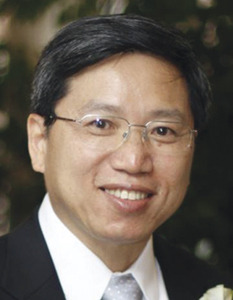
Department of Electrical Engineering, National Cheng Kung University, Taiwan; email [email protected].
Tzeng served as vice president of research and development and is currently dean and university chair professor of the College of Electrical Engineering and Computer Science at National Cheng Kung University. Before that, he was an associate director of the Alabama Micro/Nano Science and Technology Center and alumni chair professor of electrical and computer engineering at Auburn University, where he is now a professor emeritus. His research interests include micro/nanoelectronics, optoelectronics, and carbon-based science and nanotechnology, especially CVD diamond, carbon nanotubes, and graphene. He is an IEEE Fellow and has served as vice president for technical activities and vice president of publications for the IEEE Nanotechnology Council. He holds nine US patents and has over 100 SCI journal publications.
Ali Abouimrane
Argonne National Laboratory, USA; email [email protected].

Abouimrane is a senior materials scientist at ANL. He has over 13 years of experience in lithium batteries, advanced materials, and electrochemical energy devices for the development of renewable energy technologies. He has published over 50 peer-reviewed papers in international journals, more than 100 conference papers and technical presentations, and is the co-inventor of 15 patents or patent applications. He served as a reviewer for the US Department of Energy, French National Research Agency, and various journals in the fields of materials science, chemistry, and electrochemistry.
Doron Aurbach
Department of Chemistry, Bar-Ilan University, Israel; tel. +97235318317; and email [email protected].

Aurbach has been a full professor in the department of chemistry at BIU since 1996. He received his BSc (1978) and MSc (1980) degrees in chemistry from BIU and a BSc degree in chemical engineering (1981) from the Israel Institute of Technology (Technion). He completed his PhD degree in physical organic chemistry at BIU, conducted postdoctoral research in electrochemistry at Case Western Reserve University, and then joined BIU, where he chairs the department. His research interests include electrochemistry, spectroscopic methodology, high energy density batteries development, electro-coloring processes, carbon engineering, and electronically conducting polymers. He is a Fellow of the ECS (2008), ISE (2010), and MRS (2012). He leads the Israel National Research Center for Electrochemical Propulsion, serves as chairman of the Israel Laboratory Accreditation Authority, and is an associate editor for the Journal of the Electrochemical Society and the Journal of Solid State Electrochemistry.
Peter G. Bruce
University of St. Andrews, UK; tel. +44-1334-463825; and email [email protected].

Bruce is a professor of chemistry at the University of St. Andrews. His primary research interests are in the fields of solid-state chemistry and eletrochemistry. His research has been recognized by a number of awards and fellowships, including from the Royal Society, the Royal Society of Chemistry, the Electrochemical Society, and the German Chemical Society. He is a Fellow of the Royal Society (UK Academy of Sciences) and is an FRS, FRSE, and FRSC.
Yuhui Chen
University of St. Andrews, UK; tel. +44-1334-463814; and email [email protected].

Chen is a research fellow at the University of St. Andrews. He received his BS degree in chemistry from Fudan University, China, and received his PhD degree in Bruce’s group at the University of St. Andrews. His research interests focus on the fundamental understanding of rechargeable Li-air battery, the stability of electrolytes, and facilitating the charging process with redox mediators. He received the Student Research Award of The Electrochemical Society.
Jason R. Croy
Argonne National Laboratory, Lemont, IL, USA; email [email protected].

Croy is a materials scientist in the Electrochemical Energy Storage Program at ANL. He received his PhD degree in physics from the University of Central Florida. His principal research interests include the design and synthesis of Li-ion electrode materials as well as the atomic-scale mechanisms underlying their structure-electrochemical property relationships.
Marine Cuisinier
University of Waterloo, Ontario, Canada

Cuisinier is a postdoctoral fellow at the University of Waterloo working with Nazar on the development of Li-S batteries, focusing on the sulfur redox in non-aqueous media. She graduated with MSc degrees in chemistry from the École Nationale Supérieure de Chimie de Rennes, France, and in materials science through the Erasmus Mundus MaMaSELF program in 2008. She received a PhD degree in chemistry of materials in 2012 from the Institut des Matériaux Jean Rouxel in Nantes.
Mouad Dahbi
Department of Applied Chemistry, Tokyo University of Science, Japan; email [email protected].
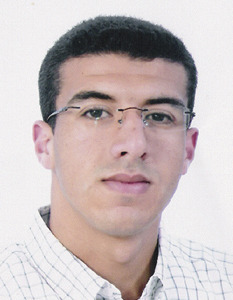
Dahbi is a postdoctoral researcher at the Tokyo University of Science. He received a PhD degree in chemistry/electrochemistry from the University Francois Rabelais of Tours in 2013. His PhD work focused on the asymmetric Li-ion capacitor in an aprotic electrolyte. He was a project researcher of the Elements Strategy Initiative for Catalysts and Batteries at Kyoto University. His current research focuses on the negative electrodes for Na-ion batteries in aprotic electrolyte.
Stefan A. Freunberger
Graz University of Technology, Austria; tel. +43-316-873-32386; and email [email protected].
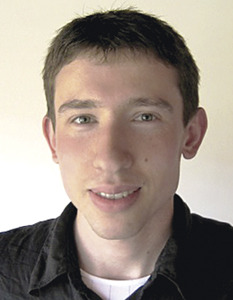
Freunberger is a senior scientist at Graz University of Technology. He received his PhD degree in chemistry from ETH Zürich and completed postdoctoral work with Peter Bruce. His research interests embrace energy-storage materials, including Li-ion and Li-O2 batteries, electrolytes, and in situ techniques. His research has been recognized by the Srinivasan Young Investigator Award of The Electrochemical Society and the invited visiting professorship la Chaire Total de la Fondation Balard.
Yossi Y. Gofer
Chemistry Department, Bar-Ilan University, Israel; tel. 972-3531-8954; and email [email protected].

Gofer is a senior researcher and surface analysis expert at BIU, leading the rechargeable magnesium research project and managing the X-ray Photoelectron Spectroscopy facility since 1998. He received his PhD degree in chemistry in 1993, studying the electrochemistry and surface chemistry of lithium metal in aprotic organic solutions. He then spent two years as a postdoc at Case Western Reserve University studying various interfacial electrochemical systems in the field of energy conversion and storage. The next two years he studied the potential application of electronically and ionically conducting polymers as materials for rechargeable batteries at the Johns Hopkins University.
Nobuyuki Imanishi
Mie University, Japan; tel. +81-59-231-9419; and email [email protected].
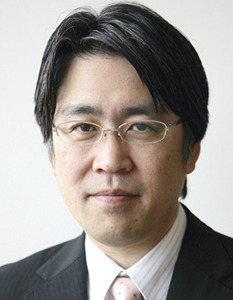
Imanishi is a professor in the Department of Chemistry, Graduate School of Engineering, at Mie University. He studied industrial electrochemistry from 1986–1990 and received his PhD degree from Kyoto University. He started his research professionally in 1990 at Mie University and was promoted to his present position after a 22-year career as an assistant and associate professor. His research focuses on functional materials and electrochemistry, especially energy conversion, and storage materials (e.g., electrode materials for lithium batteries and fuel cells) and solid-state electrolytes for those batteries.
Shinichi Komaba
Department of Applied Chemistry, Tokyo University of Science, Japan; email [email protected].

Komaba is a professor in the Department of Applied Chemistry at Tokyo University of Science. He received a PhD degree in engineering from Waseda University in 1998 and then was a research associate at Iwate University from 1998 to 2005. He also worked at the Institut de Chimie de la Matière Condensée de Bordeaux as a postdoctoral researcher. He joined the Tokyo University of Science as a faculty member in 2005. He has also been a project professor of the ESICB at Kyoto University since 2012. His current research focuses on material science and electrochemistry in electrochemical devices (rechargeable Li- and Na-ion batteries, capacitors, and sensors).
Kei Kubota
Research Institute for Science and Technology, Tokyo University of Science, Japan; email [email protected].

Kubota is an assistant professor at the Tokyo University of Science. He received his PhD degree in chemistry in 2012 from the Tokyo Institute of Technology, where he also worked as a postdoctoral researcher from 2012 to 2013. He has also been a project assistant professor of the ESICB at Kyoto University. His research focuses on energy-storage materials for Li- and Na-ion batteries.
David Kwabi
Massachusetts Institute of Technology, USA; tel. +1 617-324- 3718; and email [email protected].

Kwabi is pursuing a PhD degree in the Department of Mechanical Engineering at MIT. His research centers on investigating Li-O2 reaction mechanisms using traditional electrochemical techniques and spectroscopic methods. He received his BSE degree in mechanical engineering from Princeton University in 2010 and an MS degree in mechanical engineering from MIT in 2013.
Elena Levi
Department of Chemistry, Bar-Ilan University, Israel; tel. +97235318954; and email [email protected].
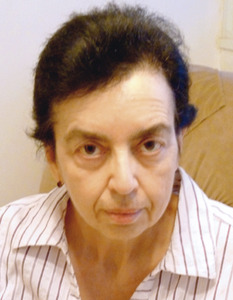
Levi received her PhD degree in crystallography from Moscow University in 1981 under the supervision of Nicolay Belov. She also worked as a senior scientist at the Moscow Center for Material Research by X-ray Diffraction. In 1994, she joined Aurbach’s group at BIU. Her research interest includes the influence of phase composition and crystal structure of electrode materials on their electrochemical behavior. Her earlier studies were devoted mainly to the effect of structure and bonding in cluster compounds (in particular, Chevrel phases) and their stability and ionic conductivity.
Gao Liu
Lawrence Berkeley National Laboratory, USA; email [email protected].

Liu is a staff scientist and principal investigator in the Batteries for Advanced Transportation Technologies program at LBNL, specializing in lithium battery research. Since he joined LBNL in 2001, Liu has led energy-storage research projects for the Department of Energy and developed key technologies, including conductive binders and application of lithium metal to improve battery performance. He has also collaborated with companies to commercialize new battery technologies. He has received numerous awards, including the LBNL Outstanding Performance Award in 2005, International Meeting on Lithium Batteries Most Excellent Paper Award in 2008, the University of California Discovery Grant Award in 2011, and R&D 100 Award in 2013.
Linda Nazar
University of Waterloo, Ontario, Canada; email [email protected].

Nazar is a professor of chemistry and electrical engineering at the University of Waterloo. She holds a Senior Canada Research Chair in Solid State Energy Materials and is a Fellow of the Royal Society of Canada. She received her PhD degree in chemistry from the University of Toronto and joined Exxon Corporate Research as a postdoctoral fellow. In 2013, she was awarded the August-Wilhelm-von-Hofmann Lectureship (German Chemical Society). She was also the recipient of the Electrochemistry Society Battery Research Award (2009), the International Battery Association Award (2011), the 2011 IUPAC Distinguished Women in Chemistry/Chemical Engineering Award, and the 2010 Moore Distinguished Scholar at the California Institute of Technology. Her research is focused on materials for energy storage and conversion, with research spanning Li, Na, and Mg-ion batteries, Li-sulfur and Li-air batteries, fundamental solid-state chemistry, and electrochemistry.
Nagore Ortiz-Vitoriano
Massachusetts Institute of Technology, USA; tel. +1-617-253-0536; and email [email protected] and CIC Energigune, Spain; tel. +34-945-297108; and email [email protected].

Ortiz-Vitoriano is a Marie Curie postdoctoral fellow at MIT in the Electrochemical Energy Lab. She received her PhD degree in inorganic chemistry from the University of Basque Country, having undertaken research at both Risø DTU, Denmark, and Imperial College London. Her research is centered on understanding the reaction mechanisms in metal-air batteries and designing materials for oxygen electrocatalysis.
Quan Pang
University of Waterloo, Ontario, Canada

Pang is pursuing his MSc and PhD degrees in chemistry at the University of Waterloo. He graduated with a BSc degree in materials science and engineering from Huazhong University of Science and Technology, China. Under the supervision of Nazar, he is currently working on the development of novel cathode materials for Li-sulfur battery.
Michael Salama
Chemistry Department, Bar-Ilan University, Israel; email [email protected].

Salama is a MSc student at BIU. He received his BSc degree in chemistry in 2013. The focus of his research is magnesium electrochemical properties.
Yang Shao-Horn
Massachusetts Institute of Technology, USA: tel. +1-617-253-2259; and email [email protected].

Shao-Horn is the Gail E. Kendall Professor of Mechanical Engineering and professor of materials science and engineering at MIT. Her research is centered on understanding the electronic structures of surfaces with emphasis on metal oxides, searching for descriptors of catalytic activity, surface/interface reactivity and ion transport, and applying fundamental understanding to design materials for oxygen electrocatalysis, ion intercalation, and ion conductors.
Ivgeni Shterenberg
Chemistry Department, Bar-Ilan University, Israel; email [email protected].

Shterenberg is a PhD candidate at Bar-Ilan University. He received his MSc degree in chemistry in 2010 in the field of magnesium electrochemistry and Mg rechargeable batteries. The focus of his research is electrolyte solutions for magnesium batteries.
Jack Vaughey
Argonne National Laboratory, IL, USA; email [email protected].

Vaughey is the group leader for interfacial chemistry in the Electrochemical Energy Storage Department at ANL and has worked at ANL in the electrochemical energy-storage group since 1997. He received his PhD degree from Northwestern University studying oxygen deficient perovskites. His work focuses on the discovery and development of new battery materials: cathodes, anodes, and solid electrolytes.
Naoaki Yabuuchi
Research Institute for Science and Technology, Tokyo University of Science, Japan; email [email protected].

Yabuuchi is an assistant professor at the Tokyo University of Science. He received his PhD degree from Osaka City University in 2006 and served as a postdoctoral associate at MIT and an assistant professor at Osaka City University. He has also been a project assistant professor of the ESICB at Kyoto University since 2012. His research interests lie in the design, synthesis, and characterization of novel materials for Li- and Na-ion batteries.
Atsuo Yamada
University of Tokyo, Japan; email [email protected].

Yamada has been a professor at the University of Tokyo since 2009, directing multidisciplinary research on materials for energy storage and conversion. He received his MS and PhD degrees in applied physics from the University of Tsukuba in 1990 and 1996. After 13 years of service as a staff scientist and laboratory head of Sony Research Center, he was appointed as an associate professor at Tokyo Institute of Technology in 2002 and as a full professor of the University of Tokyo in 2009. He received the Spriggs Award from the American Ceramic Society in 2010.
Hiroaki Yoshida
Department of Chemical Sciences and Technology, Tokyo University of Science, Japan; email [email protected].

Yoshida is a graduate student in the Department of Chemical Sciences and Technology at the Tokyo University of Science. He received a BSc degree in chemistry from the Tokyo University of Science in 2011. His research focuses on energy-storage materials for Na-ion batteries, with particular emphasis on the synthesis and characterization of materials.
Ji-Guang (Jason) Zhang
Pacific Northwest National Laboratory, USA; email [email protected].

Zhang is a Laboratory Fellow and group leader for PNNL’s efforts in the area of energy storage for transportation applications. He has 23 years of experience in the development of energy storage and energy efficient devices, including Li-ion, Li-air, Li-metal, Li-S, and thin-film solid-state batteries, and electrochromic devices. He received his PhD degree in experimental condensed-matter physics from the University of Kentucky in 1990. He was the co-recipient of two R&D 100 Awards, holds 11 patents (with another 14 patents pending), and has published more than 100 papers in refereed journals.
Zhengcheng Zhang
Argonne National Laboratory, USA; email [email protected].

Zhang is a senior research chemist and group leader of the advanced electrolyte research group at ANL. His main research focuses on advanced electrolytes and electrolyte additives for Li-ion batteries for electric vehicle applications. His research interests also cover chemistries beyond lithium-ion, including Li-S, Li-Air, Mg batteries, and electrochemical capacitors. He has published over 70 papers in peer-reviewed journals and has been invited to speak at national and international conferences in the field of electrochemical energy storage.


